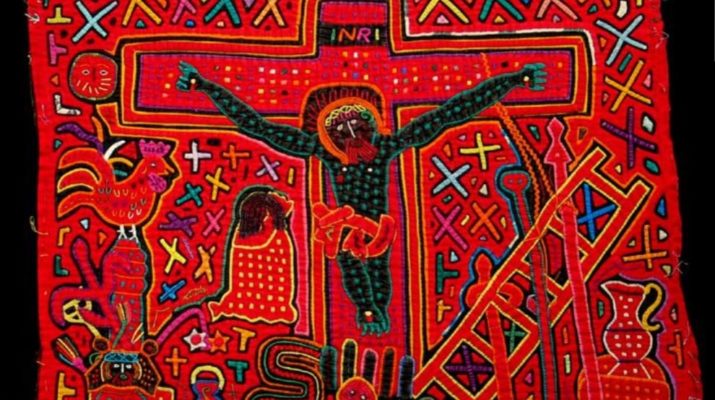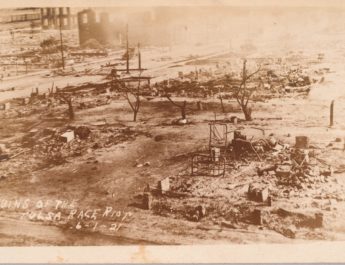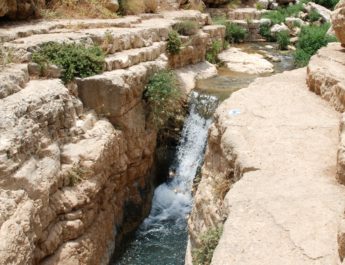John 19:31-42
Narrative Lectionary 438
31 Since it was the day of Preparation,A the JewsB did not want the bodiesC leftD
A “Preparation” = paraskeue. 6x in NT. From paraskeuazo (to prepare, get ready); {from para (from beside, by) + skeuos (vessel, tool, container, implement; also vessel in a figurative or literal sense); {from skeuazo (to prepare using a tool)}}. This is preparation or readiness. It can be used specifically to refer to preparing for the Sabbath or a festival.
B “Jews” = Ioudaios. From Ioudas (Judah, Judas); from Hebrew Yehudah (Judah, son of Jacob, his tribal descendants, a name for the southern kingdom. Literally, it means praised); probably from yadah (to throw one’s hands into the air in a gesture of praise); from yad (hand). This is Jewish, a Jew, or Judea.
C “bodies” = soma. Perhaps from sozo (to save, heal, rescue); from sos (safe, well, rescued). This is body or flesh. It can be body in a literal or figurative sense (as the body of Christ). This is where the word “somatic” comes from.
D “left” = meno. This is to stay, remain, wait, await, continue, abide, endure. It can mean to literally stay in a place or to remain in a condition or to continue with hope and expectation.
on the crossE during the sabbath,F especially because that sabbath was a dayG of greatH solemnity.
E “cross” = stauros. From the same as histemi (to stand, cause to stand). This is an upright stake, cross. Literally refers to the horizontal beam of a Roman cross, generally carried by the one convicted to die.
F “sabbath” = sabbaton. From Hebrew shabbath (sabbath); from shabath (to rest, stop, repose, cease working; by implication, to celebrate). This is the sabbath. It can also be used as shorthand for a week i.e. the time between two sabbaths.
G “day” = hemera. Perhaps from hemai (to sit). This is day, time, or daybreak.
H “great” = megas. This is big in a literal or figurative sense – great, large, exceeding, abundant, high, mighty, perfect, strong, etc.
So they askedI PilateJ to have the legsK of the crucified men brokenL and the bodies removed.M
I “asked” = erotao. From eromai (to ask) OR from ereo (to say, tell, call, speak of). This is asking a question or making an earnest request. It is used between someone with whom the asker is close in some sense. So, they anticipate special consideration for their request.
J “Pilate” = Pilatos. From Latin Pilatus (may mean one who has skill with a javelin); perhaps from pilum (javelin) OR perhaps from pileus (a soft cap made of felt that was brimless and was associated with people who were freedmen). This is Pilate. See https://en.wikipedia.org/wiki/Pontius_Pilate
K “legs” = skelos. 3x in NT – all in this passage. Perhaps from skello (to parch). This is leg, beginning at the hip.
L “broken” = katagnumi. 4x in NT. From kata (down, against, throughout, among)) + rhegnumi (to break, burst, wreak, crack, break apart). This is to crush or beak in pieces.
M “removed” = airo. This is to lift up in a literal or figurative sense. So, it could mean to lift, carry, or raise. It could also imply lifting something in order to take it away or remove it. Figuratively, this can be used for raising the voice or level of suspense. It can mean sailing off as raising the anchor. It can also correspond to a Hebrew expression for atonement of sin (lift/remove sin).
32 Then the soldiersN cameO andP broke the legs
N “soldiers” = stratiotes. From stratia (army; used figuratively for large organized groups like the angels and the hosts of heaven, which is to say the stars); from the same as strateuo (to wage war, fight, serve as a soldier; used figuratively for spiritual warfare); or from the base of stronnuo (to spread, to spread out like a bed). This is a soldier in a literal or figurative sense.
O “came” = erchomai. This is to come or go.
P {untranslated} = men. This is truly, indeed, even, in fact. Often, it is not translated, but used to emphasize affirmation.
of the firstQ and of the otherR who had been crucified withS him.
Q “first” = protos. From pro (before, first, in front of, earlier). This is what is first, which could be the most important, the first in order, the main one, the chief.
R “other” = allos. This is other, another. Specifically, it is another of a similar kind or type. There is a different word in Greek that speaks of another as a different kind (heteros).
S “crucified with” = sustauroo. Related to “cross” in v31. 5x in NT. From sun (with, together with) + stauroo (to attach someone to a cross or fencing with stakes; figuratively, to destroy, mortify, or subdue passions/selfishness); {from stauros (see note E above)}. This is to crucify with in a literal or figurative sense.
33 But when they came to JesusT and sawU that he was already dead,V they did not break his legs. 34 Instead, oneW of the soldiers piercedX his sideY with a spear,Z
T “Jesus” = Iesous. From Hebrew Yehoshua (Joshua, the Lord is salvation); {from YHVH (proper name of the God of Israel; the self-existent and eternal one); {from havah (to become) or from hayah (to come to pass, become, be)} + yasha (to deliver, defend, help, preserve, rescue; properly, to be open, wide or free, which implies being safe. So, in a causative sense, this is to free someone)}. This is Jesus or Joshua in Greek – the Lord saves or the Lord is salvation.
U “saw” = horao. To see, perceive, attend to, look upon, experience. Properly, to stare at and so implying clear discernment. This, by extension, would indicate attending to what was seen and learned. This is to see, often with a metaphorical sense. Can include inward spiritual seeing.
V “dead” = thnesko. 9x in NT. This is to die or be dead in a spiritual or literal sense.
W “one” = heis. This is one, a person, only, some.
X “pierced” = nusso. 2x in NT. This is to prick or pierce.
Y “side” = pleura. 6x in NT. This is the side or the side of the body. It is where “pleurisy” comes from.
Z “spear” = logche. 2x in NT. This is lance or spear.
and at onceAA bloodBB and waterCC came out.DD
AA “at once” = eutheos. From euthus (immediately, upright, straight and not crooked); {perhaps from eu (good, well, well done, rightly) + tithemi (to place, lay, set, establish)}. This is directly, soon, at once.
BB “blood” = haima. This is blood in a literal sense as bloodshed. Figuratively, it can also be used to refer to wine or to kinship (being related).
CC “water” = hudor. Perhaps from huetos (rain); from huo (to rain). This is water literal or figurative. It is one of the roots that “hydrogen” and “hydroelectric” come from.
DD “came out” = exerchomai. Related to “came” in v32. From ek (from, from out of) + erchomai (see note O above). This is to go out, depart, escape, proceed from, spread news abroad.
35 (He who saw this has testifiedEE so that you also may believe.FF His testimonyGG is true,HH
EE “testified” = martureo. From martus (a witness whether having heard or seen something; witness literally, judicially, or figuratively; by analogy, a martyr). This is to bear witness, testify, give evidence. It is to testify in a literal or figurative sense.
FF “believe” = pisteuo. From pistis (faith, faithfulness, belief, trust, confidence; to be persuaded or come to trust); from peitho (to have confidence, urge, be persuaded, agree, assure, believe, have confidence, trust). This is to believe, entrust, have faith it, affirm, have confidence in. This is less to do with a series of beliefs or doctrines that one believes and more to do with faithfulness, loyalty, and fidelity. It is trusting and then acting based on that trust.
GG “testimony” = marturia. Related to “testified” in v35. From martureo (see note EE above). This is testimony, witness, evidence, record, reputation.
HH “true” = alethinos. From alethes (true, unconcealed; true because it is in concert with fact and reality – attested; literally, what cannot be hidden; truth stands up to the test and scrutiny and is undeniable, authentic); {from a (not) + lanthano (concealed, hidden, unnoticed; to shut one’s eyes to, unwittingly, unawares)}. This is literally made of truth – that which is true or real, authentic. Something that is true from its source and has integrity.
and he knowsII that he tellsJJ the truth.)KK
II “knows” = eido. This is to know, consider perceive, appreciate, behold, or remember. It means seeing with one’s eyes, but also figuratively, it means perceiving – seeing that becomes understanding. So, by implication, this means knowing or being aware.
JJ “tells” = lego. This is to speak, say, name, call, command. It is generally to convey verbally.
KK “truth” = alethes. Related to “true” in v35. See note GG above.
36 These things occurredLL so that the scriptureMM might be fulfilled,NN “None of his bonesOO shall be broken.”PP
LL “occurred” = ginomai. This is to come into being, to happen, become, be born. It can be to emerge from one state or condition to another or is coming into being with the sense of movement or growth.
MM “scripture” = graphe. From grapho (to write). This is literally writing, a document. In the New Testament, this is always used for scripture.
NN “fulfilled” = pleroo. From pleres (to be full, complete, abounding in, occupied with). This is to fill, make full or complete. Properly, this is filling something up to the maximum extent that it can be filled – an appropriate amount for its individual capacity. So, this is used figuratively for furnish, influence, satisfy, finish, preach, perfect, and fulfill.
OO “bones” = osteon. 5x in NT. This is bone. It is one of the roots of “osteopath.”
PP “broken” = suntribo. 8x in NT. From sun (with, together with) + the same as tribos (worn track or path like a rut that is formed from rubbing i.e. steady use; also road or highway); {from tribo (to rub or thresh)}. This is break in pieces, bruise, shatter, or crush completely.
37 And again anotherQQ passage of scripture says, “They will lookRR on the one whom they have pierced.”SS
QQ “another” = heteros. This is other, another, different, strange. It is another of a different kind in contrast to the Greek word allos, which is another of the same kind. This could be a different quality, type, or group.
RR “look” = horao. Same as “saw” in v33. See note U above.
SS “pierced” = ekkenteo. 2x in NT. From ek (from, from out of) + the same as kentron (a sting or sharp point; figuratively, poison or death); {from kenteo (to prick)}. This is to pierce or transfix.
38 After these things, JosephTT of Arimathea,UU who was a discipleVV of Jesus,
TT “Joseph” = Ioseph. From Hebrew Yoseph (he increases; Joseph); from yasaph (to add, increase, continue, exceed). This is Joseph, meaning “he increases.”
UU “Arimathea” = Harimathaia. 4x in NT. From Hebrew compare Ramah (Ramah, height); from rum (to be high, rise, exalt self, extol, be haughty; to rise literally or figuratively). This is Arimathea, a city by Jerusalem.
VV “disciple” = mathetes. From matheteuo (to make a disciple of); from manthano (to learn key facts, gain knowledge from experience; generally implies reflection as part of the learning process); from math– (thinking things through). This is a disciple, learner, or student. It is where we get “mathematics” from.
though a secretWW one because of his fearXX of the Jews, asked Pilate to let him take awayYY the body of Jesus. Pilate gave him permission;ZZ so he came and removed his body.
WW “secret” = krupto. 18x in NT. This is to hide by covering, secret, hidden things. This is the root of the word “cryptography.”
XX “fear” = phobos. From phebomai (to flee, withdraw, be put to flight). This is panic flight, fear, fear being caused, terror, alarm, that which causes fear, reverence, respect.
YY “take away” = airo. Same as “removed” in v31. See note M above.
ZZ “gave…permission” = epitrepo. 18x in NT. From epi (on, upon, against, what is fitting) + the same as trope (turning, change, shifting); {from trepo (to turn)}. This is to allow, permit, yield, entrust, give license.
39 Nicodemus,AAA who had at first come to Jesus by night, also came, bringingBBB a mixture of myrrhCCC
AAA “Nicodemus” = Nikodemos. 5x in NT. From nikos (victory, triumph – especially a conquest); {from nike (victory, conquest; figurative for what makes one successful)} + demos (district, multitude, rabble, assembly; Greeks bound by similar laws or customs); {from deo (to tie, bind, compel, declare unlawful)}. This is Nicodemus, meaning “victorious among his people.”
BBB “bringing” = phero. This is to bear, bring, lead, or make known publicly. It is to carry in a literal or figurative sense.
CCC “myrrh” = smurna. 2x in NT. Perhaps from muron (ointment, perfume, or oil for anointing); compare Arabic murr (myrrh, literally meaning bitterness) & Hebrew mo (myrrh, literally meaning bitterness). This is myrrh, used in preparing the body for burial. Can also be figurative for romantic desire. See https://en.wiktionary.org/wiki/myrrh
and aloes,DDD weighing about a hundredEEE pounds.FFF
DDD “aloes” = aloe. 1x in NT. This is either sap from a tree called the aquillaria agallocha, the eaglewood tree, or it could refer to proper aloe. In addition to its use for embalming, aloe is associated with love in the Song of Songs 4:14.
EEE “hundred” = hekaton. 17x in NT. This is hundred literal or figurative.
FFF “pounds” = litra. 2x in NT. From Latin libra (a Roman weight – twelve ounces; also a level or set of scales); from Proto-Italic lithra (pound). This is a pound, which is about 327.5 grams. See https://en.wiktionary.org/wiki/libra#Latin
40 They tookGGG the body of Jesus and wrappedHHH it with the spicesIII
GGG “took” = lambano. It does not refer to passive receiving of something, but active acceptance or taking of something whether it is offered or simply nearby. It focuses on individual decision and action.
HHH “wrapped” = deo. Related to “Nicodemus” in v39. See note AAA above.
III “spices” = aroma. Related to “removed” in v31. 4x in NT– all used of bringing spices for Jesus’ body. Perhaps from airo (see note M above). This is a sweet spice, seasoning, or perfume. It is where the word “aroma” comes from.
in linen cloths,JJJ according to the burialKKK customLLL of the Jews.
JJJ “linen cloths” = othonion. 5x in NT – all related to Jesus’s burial. From othone (a cloth made of linen, a sail). This is a band of linen, a wrapping.
KKK “burial” = entaphiazo. 2x in NT. From en (in, on, at, by, with) + taphos (a burial place such as a grave, sepulcher, or tomb); {from thapto (to bury, hold a funeral)}. This is to prepare a body to be buried, to embalm.
LLL “custom” = ethos. 12x in NT. From etho (custom, what is customary). This is custom habit, rite – also, doing something that the law requires. It can be an unwritten custom, acting in accordance with tradition.
41 Now there was a garden in the placeMMM where he was crucified,NNN and in the garden there was a newOOO tombPPP in which no one had ever been laid.QQQ 42 And so, because it was the Jewish day of Preparation, and the tomb was nearby,RRR they laid Jesus there.
MMM “place” = topos. This is a place or region. It is a smaller space that can only hold a limited number of people whereas chora is a larger place. Figuratively it could be an opportunity.
NNN “crucified” = stauroo. Related to “cross” in v31 & “crucified with” in v32. See note S above.
OOO “new” = kainos. This is not new as in new versus old. This is new in the sense of novel, innovative, or fresh.
PPP “tomb” = mnemeion. Related to “left” in v31. From mousikos (to remember); from mneme (memory or mention); from mnaomai (to remember; by implication give reward or consequence); perhaps from meno (see note D above). This is properly a memorial – a tomb, grave, monument.
QQQ “laid” = tithemi. Related to “at once” in v34. See note AA above.
RRR “nearby” = eggus. Perhaps from agcho (to squeeze). This is nearby or near in time.
Image credit: “Crucifixion” – a mola from San Blas Islands, Panama. From the collection of F.L. & Lucille Hoover, from 1966 to 1971.




